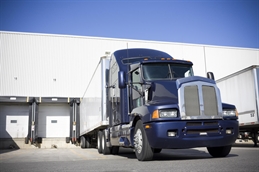
Impelled by pressure from clients and competitors and by the ready availability of software packages, large forwarders are further ramping up their capabilities to digitize the quoting and selling processes.
Online pricing platform Freightos predicts that the majority of international forwarders will be selling online within less than five years. However, it also warned that their efforts to date are not going to be enough to meet customer expectations and fend off competition.
For the past five years, the company has conducted mystery shopper surveys to gauge the electronic quoting and pricing capabilities of forwarders. This year, it trained its sights on five ocean carriers and several large forwarders and digital forwarders.
Posing as a rapidly expanding US e-commerce importer, it visited their respective websites to request quotes for a door-to-door shipment from a large Chinese city to a major urban center in the US.
The exercise focused on three key elements – response, quality of the response information, and the overall sales process.
The tests indicate that large forwarders have become more responsive. Only one of them failed to confirm an RFQ, whereas a year ago as many as five had failed to do so. When the tests started five years ago, Freightos found not a single large forwarder was selling online.
The company attributes the improvement to three major factors – declining costs for cloud-based software, heightened customer expectations and rising competition from digital forwarders as well as shipping lines.
Ocean carriers emerged from this latest round as serious competitors for shipper/consignee approaches. All five of the contacted lines had RFQ forms readily available on their websites, and their response times were quicker than those of the forwarders. Hapag-Lloyd provided an instant response, and Maersk responded in less than an hour.
Still, forwarders have improved, Freightos found. For starters, many have moved beyond general enquiry forms as the only avenue for online RFQs on their websites and now deploy special forms for this purpose. But half of the forwarders have yet to follow suit, Freightos noted. “Online sales can hardly be considered cutting-edge and is increasingly utilized with B2B, so this year’s results are still disappointing,” it commented.
Four forwarders now have a live chat function on their website to help clients navigate the site and complete tasks.
While response times have come down overall, 63% of the quotes were still not instant, according to Freightos. It found the average response time for manual responses was 122 hours. In once case it took the company 19 days to get back to the mystery shipper.
Instant quoting – the gold standard in Freightos’ book – is important but needs to be flanked by other elements, the company stressed. “What will cut it are websites that help customers help themselves, give them more choice and otherwise make an attractive proposition, while supporting more efficient internal operations,” it argued.
Some forwarders are striding in this direction, the survey indicates. Some offer choices.
CEVA, for instance, asks for preference between price, speed and guaranteed booking, Kuehne + Nagel has a guaranteed space service offer, and DHL Global Forwarding has supply chain disruption alerts. Increasingly, they also move beyond a single mode. Agility emerged as the most diverse in this respect, with online quotes for airfreight, LCL and FCL shipments.
Freightos emphasized that the ability to offer a low-touch service is as influential on shipper decisions as price. “Amazon is proof that online sales is not about price, it’s about customer experience, which is the best combination of price and service,” the report’s authors declared.
They also pointed out that 45% of Freightos customers who make bookings without speaking to a service representative do not choose the lowest price.
Pricing itself is still very opaque, according to Freightos. It found large spreads in rates quoted. The highest FCL quote was 68% above the lowest, and the spreads for air cargo and LCL were 134% and 192%, respectively.
Arguably the biggest shortcoming of the players approached for this study is a somewhat baffling failure to follow up on quotes. Many forwarders came up short at this hurdle, and even the shipping lines, for all their alacrity in quoting, failed unanimously in this respect.
“Of the 15 manual and nine instant quotes, staggeringly only four were subsequently followed up on – a missed opportunity carrying little cost. As more of the sales process is automated, taking this extra step should be mandatory,” Freightos commented, adding that this shortcoming is rather ironic, since it could be automated with off-the-shelf technology.
Notwithstanding such flaws, its authors are convinced that forwarders will ramp up their online selling and quoting game. As they do so, the SME sector – often viewed as too small to warrant their effort – beckons as a lucrative market, they pointed out.
“We’re confident that in less than five years the majority of global forwarders will be selling freight online,” they concluded.
By Ian Putzger
Correspondent | Toronto



